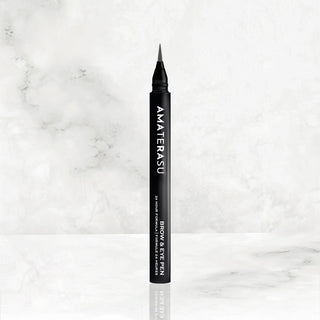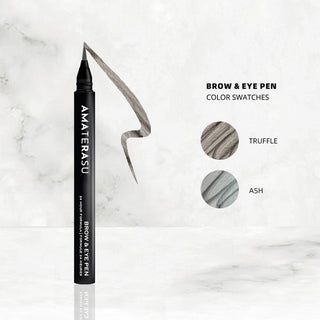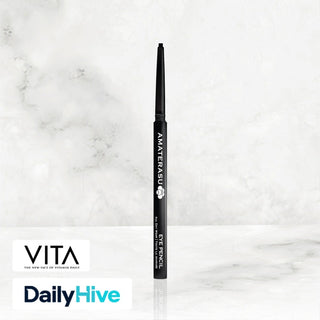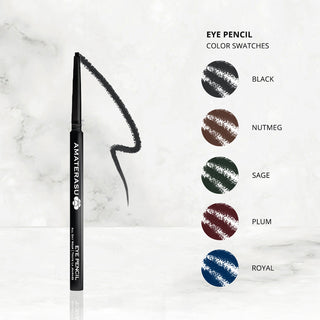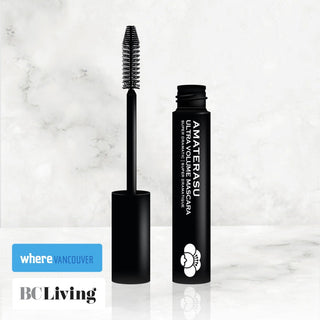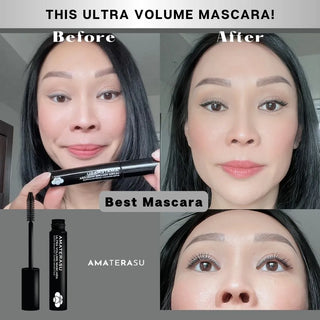
What does clean mean to us?
Clean is a term that has grown in popularity over the past five years. As more people become aware of the potential side-effects of ingredients, they look for cleaner products. However, for me, clean goes beyond the products I use – it’s a way of living.
I’ve led a clean lifestyle from an early age. In my late teens, I became interested in living healthier, and by the time I was 21 I was buying all-organic produce. I’m a firm believer that prevention is key.
We know to exercise to stay lean and detox. But, what we fail to realize is that what we put into and onto our bodies contributes to our toxic load. If we put whole, nutritious food into our bodies, we burn cleaner fuel. Just like the type of gas we put into our car. Sadly, most of us pump better quality gas into our cars than food in our bodies.
For this very reason, it’s important to understand what we’re consuming and always read the labels. However, it’s next to impossible to know every single ingredient in your cosmetics – I don’t expect you to.
Clean Beauty and Amaterasu
I wanted to bring my clean philosophy and lifestyle and incorporate it into Amaterasu.
When I created Amaterasu (formerly known as Geisha Ink) in 2008, I did it with the intention to offer my customers a clean makeup alternative that would excel in performance.
For us, clean is about formulating products with the highest standards of integrity, and without pesky ingredients that could cause you potential harm. We do this without compromising the quality and performance of the product.
I want to help you lead a healthier and cleaner lifestyle. And knowing what you're putting in your body is a good start. At Amaterasu, we avoid these commonly used ingredients:
5 Ingredients to avoid in your cosmetics
Sodium Laureth Sulfate (SLS)
SLSs are commonly found in cleansers and shampoos as they are used to create bubbles and lather. Even though they might leave your hair or face feeling clean, they are counterproductive. They strip off the natural oils from your scalp and skin leaving them more vulnerable to irritations and allergies.
This was probably the first pesky ingredient to go from my beauty products. In fact, I remember my first clean beauty product was an organic hair shampoo free from SLS from a small brand in Vancouver, Canada.
Propylene Glycol
When I was in high school, I worked at an automotive store as a cashier. We sold lots of windshield fluid washers. I was shocked to see one of the key ingredients was also used in products meant for our faces.
Propylene Glycol is used to lift grime off your windows and as a preservative and humectant in beauty products. The harshness of this ingredient can lead to skin irritations and redness. This is definitely one to avoid.
Parabens
Parabens are probably the best-known ingredient to avoid. Many brands have become aware of their potential harm and have reformulated products without this ingredient. However, it is still widely used, and you should keep an eye out for them.
Parabens are used as preservatives in makeup and skincare products; they prevent bacteria build-up and contamination. However, parabens have been tied to hormone disruption, increasing the risk of cancer.
You can also find it listed as methylparaben, ethylparaben, and propylparaben.
Phthalates
Also listed as DEP, DBP, DEHP in labels, phthalates are a type of industrial chemical used as a solvent in some beauty products, like nail polish, hairspray, and fragrances. There is enough evidence to show that repeated exposure to phthalates can cause endocrine disruption. This can lead to harm during critical periods of development during pregnancy, and damage the liver, kidneys, lungs, and reproductive system.
PFAS
PFAS (short for per- and polyfluoroalkyl substance) is used in cosmetics and other products for its waterproofing effect. It repels water, oil, and grease, making it a staple in waterproof mascaras, liquid lipstick, and foundations. You can also find PFAS in Teflon-coated cooking pans for the same reasons.
While we all love makeup that lasts from am to pm, it’s essential to understand the potential risks of PFAS exposure. They can remain in your body for years and in the environment for centuries. Some PFAS have been linked to high cholesterol, thyroid disease, and other problems.
The Impact on Your Liver
As I continue to study, research, and have lengthy discussions with alternative health practitioners, it becomes clearer why we should never burden our liver – the primary organ responsible for toxin removal.
Think of the liver like a fish tank filter. When the filter is jammed, the water (blood in this case) will be cloudy with toxins floating all over the tank (your body). I think you can visualize what takes place next.
Allergies do not happen overnight and neither does damage to our livers. After repeated use of conventional beauty products, eating genetically modified food (GMO’s) laden with pesticides, and other poor lifestyle choices, our liver becomes sluggish. Our bodies can only take so much.
You may have found Amaterasu for different reasons. Many of our clients found us by referral because they were looking for truly smudge-proof makeup. They later discovered that we are also a clean beauty company. Being a clean brand is not a trend for us; it is part of our identity. Personally, I will not put in what I will not use.
I am proud to say our Liquid Eyeliner, Brow Liner, Eye Pencils, and Mascaras are free from the ingredients mentioned above. Our customers with sensitivities are happy to finally wear makeup without the reactions they used to experience. I hope you can find that joy and sense of security with our products.
Wishing you the best of health,
Sara
-----------------------------------
Sources
Green Science Policy Institute. (2021). PFAS in Cosmetics - Green Science Policy Institute. Retrieved January 5, 2022, from https://greensciencepolicy.org/pfas-in-cosmetics/
Travis, K. (2021, June 15). Many cosmetics contain hidden, potentially dangerous ‘forever chemicals.’ Science News. Retrieved January 5, 2022, from https://www.sciencenews.org/article/cosmetics-makeup-pfas-chemicals
Paras, T. (2016, March 15). Study proves damaging effects of GMOs on liver, kidneys, blood and DNA. GMO News. Retrieved January 5, 2022, from https://www.gmo.news/2016-03-15-study-proves-damaging-effects-of-gmos-on-liver-kidneys-blood-and-dna.html
Andrews, D., & Burns, C. (2018, March 14). Is Teflon in Your Cosmetics? || Skin Deep® Cosmetics Database. EWG. Retrieved January 5, 2021, from https://www.ewg.org/skindeep/contents/is-teflon-in-your-cosmetics/
U.S Food and Drug Administration. (2021, October 18). Per- and Polyfluoroalkyl Substances (PFAS). Retrieved January 5, 2022, from https://www.fda.gov/food/chemical-contaminants-food/and-polyfluoroalkyl-substances-pfas
